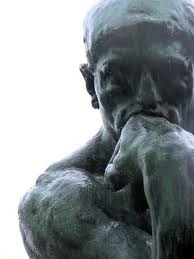 (Continued from Part 1, yesterday.)
(Continued from Part 1, yesterday.)
(1) Discriminate between the Real and the unreal.
As was revealed to me in a vision on Feb. 13, 1987, the purpose of life is for us to realize who we are. (1) Before I turn to discrimination proper, I’d like to look at life’s purpose.
If we only want to get it intellectually, rather than realize it, I can tell you now. You’re God. Did that make a great deal of difference?
Probably not, because it has to be experienced and realized as the Truth before it has a liberating, transforming effect on us.
The reason God created things this way is so that the All could have an experience of itself. (2)
Each time one of us realizes itself as God, God meets God. And for that meeting was everything you see and don’t see, universes without end, created.
The higher we climb, the more enjoyable life is. And the most enjoyment of all comes when we either merge with God as the little star in my vision did or stand revealed as God. Our joy is complete.
It isn’t as if this game of blind man’s buff is in any way harmful to us, except if you think of being consigned to the old Third Dimension as cruel and unusual punishment! Quite the contrary.
I’ve had brief experiences of states as high as ecstacy and exaltation and they make the wait worthwhile! Just when you thought it couldn’t get any better, there’s a higher state.
***
Now turning to discrimination, Sri Ramakrishna defined it as:
“Discrimination is the knowledge of what is real and what is unreal. It is the realization that God alone is the real and eternal Substance, and that all else is unreal, transitory, impermanent.” (3)
Krishna explained how it is we lose our discrimination and what that costs us:
“Thinking about sense-objects
Will attach you to sense-objects;
Grow attached, and you become addicted;
Thwart your addiction, it turns to anger;
Be angry, and you confuse the mind;
Confuse your mind, you forget the lesson of experience;
Forget experience, you lose discrimination;
Lose discrimination, and you miss life’s only purpose.” (5)
Miss life’s only purpose? To sharpen our powers of discernment so that we can discern the Real from the unreal when the time comes.
When we say “turn from the world to God,” Krishna has just described the process of being attached to the objects and pleasures of the world and what arises from it. It’s this whole process that we want to detach from.
Our attachment to sense-objects (money, sex, status symbols, etc.) sets up longing, confusion, frustration, and anger, usually when we don’t get what we want. If the mind is confused and noisy, it cannot recognize the Real when the Real presents Itself.
Whatever the mind is attracted to, it makes real, right, and true. Sociologists call this the self-serving bias.
Once the attachment is no longer there, we wake up to the truth of what we’ve been thinking and doing.
Thus, when we set out on the path to experience and realize the truth of who we are, our first step is to begin to distinguish the Real from the unreal.
***
What’s “Real” refers to the absolute. Let’s start smaller. Let’s start with the here and now, with what’s real to us on this plane of existence.
If, like me, you’re on the awareness path, then we begin to enquire into such things as our moods, our attitudes, our action – what of them, what about them is real and what’s not? Byron Katie’s path is based on asking this question. (6)
We keep our attention on ourselves. What’s really happening here? What’s really going on? What’s driving me? Where does it come from?
Alternatively, you could follow Sri Ramana’s Self-enquiry path and ask who is doing this? Who is feeling this? (7)
We find that, in looking at ourselves, we go deeper and deeper into what we later discover to be the heart, leaving behind the superficial and the unreal.
In this practice the basic premise is that the truth will set you free. The big “T” Truth will set us free from separation/individuality. The small “t” truth will set us free from our upsets, conditions, or vasanas (core issue).
In the course of discerning more and more of what’s real, we find our tastes changing. We’re no longer drawn to some things and more drawn to others. We’re probably ready for step 2.
(To be continued tomorrow.)
Footnotes
(1) See “The Purpose of Life is Enlightenment – Ch. 13 – Epilogue,” August 13, 2011, at https://goldenageofgaia.com/2011/08/13/the-purpose-of-life-is-enlightenment-ch-13-epilogue/
(2) “We do not want anything capitalized.” (Archangel Michael in a personal reading with Steve Beckow through Linda Dillon, Aug. 12, 2016.)
(3) Paramahansa Ramakrishna in Swami Nikhilananda, trans., The Gospel of Sri Ramakrishna. New York: Ramakrishna-Vivekananda Center, 1978; c1942, 140.
(4) Sri Krishna in Swami Prabhavananda and Christopher Isherwood, trans., Bhagavad-Gita. The Song of God. New York and Scarborough: New American Library, 1972; c1944, 71.
(5) See Byron Katie, Loving What Is: Four Questions that can Change Your Life. NY: Three Rivers Press, 2002.
(6) See for instance Who am I? The Teachings of Bhagavan Sri Ramana Maharshi. Tiruvannamalai: Sri Ramanashram, 1990, 31 pages.
For more of his teachings, see: Arthur Osborne, ed., The Collected Works of Ramana Maharshi. http://www.ramana-maharshi.org. Downloaded 10 Sept. 2005 [it contains Who am I?] and Sri Ramana Maharshi, Talks with Sri Ramana Maharshi. Three Volumes in One. Tiruvannamalai: Sri Ramanashram, 2010. Talks between 1935-9.

